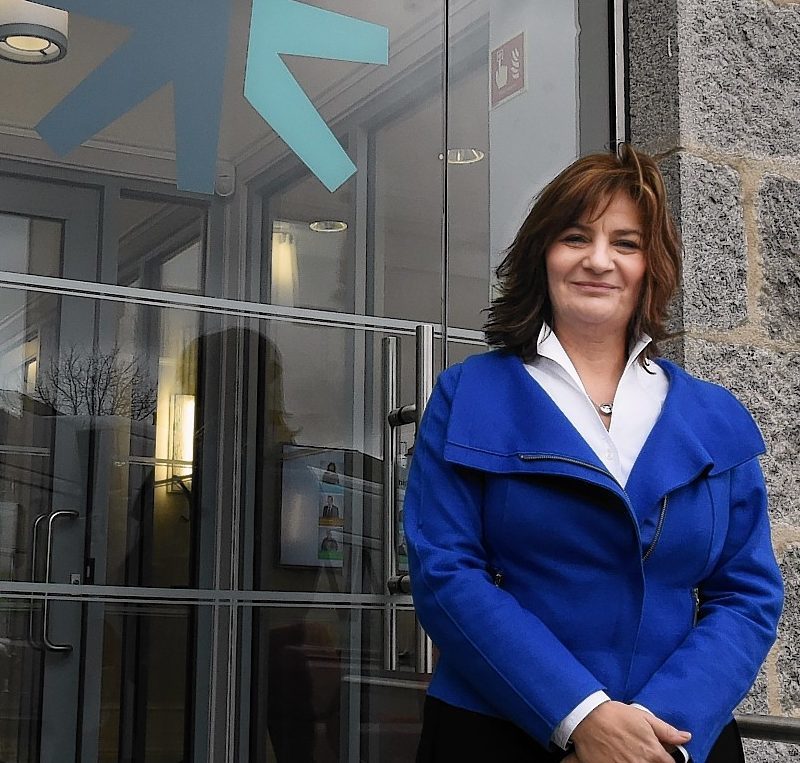
2017 was the year when the digital revolution began to take centre stage – entering the public consciousness in a big way. Everywhere we turned, there were stories about robots, artificial intelligence, big data and how the fourth industrial revolution is transforming our lives, our work and the world around us.
It’s all happening at a rapid pace – and it’s accelerating.
Just think, it’s only ten years since Apple unveiled the iPhone. Overnight, our mobile phones were no longer just devices for communicating on the move. They became our PC, our camera, our satnav, our diary, our link to family and friends – virtually indispensable. 66% of the global population is expected to own a smartphone in 2018.
The fourth industrial revolution is all about connectivity. No one is an island. Everything and everyone is connected. Our smartphone is connected to our watch, which monitors our health and wellbeing. It lets us control our lights, our heating, our fridge and our car. Connectivity is also transforming industries and creating new ones. Changing the way companies design and market new products, and how we, as consumers, buy them.
Across industry we’re experiencing an unprecedented rise in automation. This isn’t about robots taking over. This is about using new technologies to rethink how things are done – increasing productivity, improving quality and enhancing decision making.
And it’s not just about manufacturing where, for example, the automotive sector has been using robotics successfully for decades. The new wave of artificial intelligence is changing how we approach productivity. Showing us different trends in data, improving how we plan and execute work. It comes in many shapes and sizes and is already being used in sectors as diverse as medicine and defence.
There’s also another big global change underway – the energy transition to a lower carbon economy. In light of the Paris climate agreement, governments around the world have introduced far-reaching new policies that will fundamentally change industry, society and the natural environment.
In July, the UK government announced it would ban the sale of diesel and petrol cars by 2040. A pretty bold move, echoing several other countries. The Scottish government’s new energy strategy targets 50% of heat, transport and electricity consumption to be supplied from renewables by 2030.
So, what does this mean for an oil and gas industry, only just emerging from arguably the most difficult three years in its history?
Well, there are two options. We can continue with business as usual and hope that we are essential enough to society that we survive. Or, we can change and transform our business for this new world. You’ll have guessed where my head is. We must build on the performance gains we’ve made and reinvent ourselves.
We can harness the full potential of the digital revolution to create an oil and gas industry that’s fit for the 21st century. This means driving productivity and reducing emissions to create an oil and gas sector that is a valued part of a balanced, low carbon energy mix for the UK for decades to come.
And there’s a huge prize at stake. By delivering Vision 2035 our offshore oil and gas industry can generate up to £1 trillion of revenue for the UK economy. There aren’t many sectors that have the ability to make such a significant contribution to the UK economy.
The Oil & Gas Technology Centre was created in February, through the Aberdeen City Region Deal, to exploit the technology opportunity and help make Vision 2035 a reality. Since then, in partnership with the industry, we’re investing £35 million in 40 projects to accelerate exciting new technologies.
The response from companies – from SMEs to oil majors – has been excellent and we’ve enjoyed fantastic support from governments, local councils and regional partners. More than 2,500 people have taken part in our workshops and events, and we have 75 memberships across the Centre.
It’s been an exciting year but let’s not get carried away.
We’re still at the beginning of our journey, there are challenges and opportunities ahead, and still lots to do. I am confident, together with industry, we can help unlock the full potential of the UK North Sea, anchor the supply chain in NE Scotland and create a culture of innovation in the region.
Against a backdrop of digital transformation and energy transition, we have a unique opportunity to imagine a new future for the industry and the region. It is up to us to seize this opportunity, lead the change, inspire the next generation and create a diverse and connected, technology-led industry.
To build a thriving, global energy technology hub we must be bold, think big and be brave.
The future’s in our hands. We look forward to an exciting 2018.
Colette Cohen is chief executive of the Oil and Gas Technology Centre
Recommended for you
